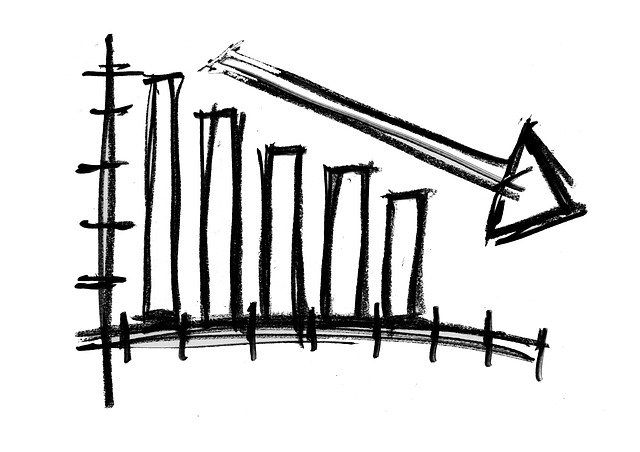The 7 Best Advice You Could Ever Get To Make Money During Recession

1. Protect Your Primary Income Source
If you want to become a savvy investor, you have to have some money to invest. Losing the primary income source will leave you without any money to invest and you will have to spend all your energies on getting a new job in order to take care of your personal finances. This is why you need to first focus on keeping your job or your business in case of self-employment.
Think about the financial stability of your business or your employer. If you are doing a job, brainstorm about the security of your role. In a recession, some jobs tend to be much more secure than others.
Has the UK’s recovery finally arrived? Well, let’s find out. If you think that it will get tough for your small business or your job to survive in a recession, you need to take action. Think about changing your career or switching to a more stable employer. You might want to look into getting a new degree or certification when you already have a steady income stream.
Think of adding new income sources. Maybe you could have a side gig that will help you reduce dependence on your primary income source. Maybe you could grow that side gig into something that will allow you to completely replace your primary income source. There is no lack of side business ideas that anyone can start today.
2. Focus on Savings
The probability of a personal financial crisis increases during a recession and this is why you should think of boosting your savings in advance to have some emergency funds during the recession.
Take a close look at your budget and cut out any expenses you can. In fact, draw up a completely new budget. You can easily do that in Google Sheets with a budget template. Make sure you check every budget category.
Take a close look at recurring expenses such as insurance premiums, car payments, and housing payments. Check your bank statement and credit card statement to find all the subscription services. Cut down all the subscriptions that are not necessary. You might also want to use a bill negotiation service if you don’t have enough time to do it on your own.
Try to cook your own food. Cut expenses on take-out, packed lunches, delivery, and restaurant meals. Figure out ways to get groceries at a cheaper price.
For most households, food is their third-largest expense. Your biggest monthly expense is likely to be the housing payment. Put some thought into completely eliminating or reducing this payment.
Pro Tip: There are bank accounts where you get a generous cash bonus for signing up. Currently, you may get a bonus of up to $500 for opening in your checking around with BMO Harris.
3. Save Money on Housing
Personally, I have saved a ton of money on housing costs over the last decade. In fact, I haven’t paid for housing for the last seven years.
Figure out ways to make money through your housing to offset some of the housing costs. It’s known as house hacking and you have several options to do it.
Consider having a roommate or think of setting up a garage or basement apartment. An accessory dwelling unit is also an option. Think about renting out storage space in your parking garage for boats, RVs, cars, or other big vehicles.
In fact, my business partner hosted a foreign exchange student for a total of four years and they were able to cover most of their mortgage payments with the stipend.
Think out of the box and if you can get rid of the housing payment, you will have access to a lot of money for making investments.
4. Different Strategies for Short-Term and Long-Term Investment
Nobody likes losing money on short-term investments, even during a recession. Short-term investments refer to assets that have been deployed for up to a year in order to generate a modest return.
You will need to perform some research to find investments that are recession-proof for your short-term investments. If your short-term holdings have some risky assets, get rid of those assets and transfer them to safer asset classes.
These may include consumer staples, precious metals, or dividend-generating stocks that have strong cash flow and other such options.
However, long-term investments require a different strategy. You would want to research assets that are likely to lose most value during a recession in order to get them at a significant discount. Make sure you only invest in assets that are likely to regain their value in the long term.
5. Invest in Heavily Discounted Stocks
The stock market always goes down in a recession and the fall is often dramatic.
There are two ways to look at it. You may choose to get depressed over it or you can choose to look at it as an opportunity.
In most cases, stocks lose value in the six months preceding a recession. Having said that, a 16% average return has been generated by S&P 500 in the year after the recession. If you look at the even bigger picture, S&P 500 has generated a 10% annual return ever since it came into being.
In a recession, your safest bet is to invest in an ETF mirroring the S&P 500. It will give you enough diversification in companies that have strong fundamentals. However, there are still stocks that lose a lot more value during recessions.
During a recession, certain types of stocks such as small-cap, growth stocks as well as technology stocks lose more value as compared to established businesses with a good cash flow. You can get these stocks at a significant discount.
If you do not want to pick individual companies, you may want to get into exchange-traded funds that invest in such stocks. It will give you a better risk distribution. Common examples include funds focused on Russell 2000 which is a proxy for small-cap stocks and NASDAQ which is a good proxy for technology stocks.
The maximum potential gain will come from stocks that have lost substantial value but are likely to make excellent come back once the recession is over. However, individual stocks also expose you to greater risk as a company may cease to exist. Investment in individual stocks or managed mutual funds is recommended only for seasoned investors.
6. Don’t Think Too Much About Your Net Worth
There is no point in being fixated on net worth during a recession. All you’re going to see is losses.
Checking your net worth frequently is only going to help if it keeps you on the path of good financial habits such as making investments and saving money. Your focus should be on the process and not an immediate result when all you see is red.
During a recession, your focus should be on saving and investing your money.
Short-term results are likely to be in red. It is also possible that you may lose money on paper as the market falls. However, you know that markets are going to go up at a later date and this is why you should continue investing.
If you keep waiting for obvious signs of recovery, you’re unlikely to get a substantial upside.
7. Take Advantage of Dollar Cost Averaging
Think about setting up automated recurring investments. These investments may happen every week or every couple of weeks. It’s known as dollar cost averaging which means you can use it to mimic the market.
Set up an account with a robo-advisor to get started. You may also get in touch with your financial advisor for a personalized investment strategy.
Dollar-cost averaging works and you will get better returns as compared to timing the market






